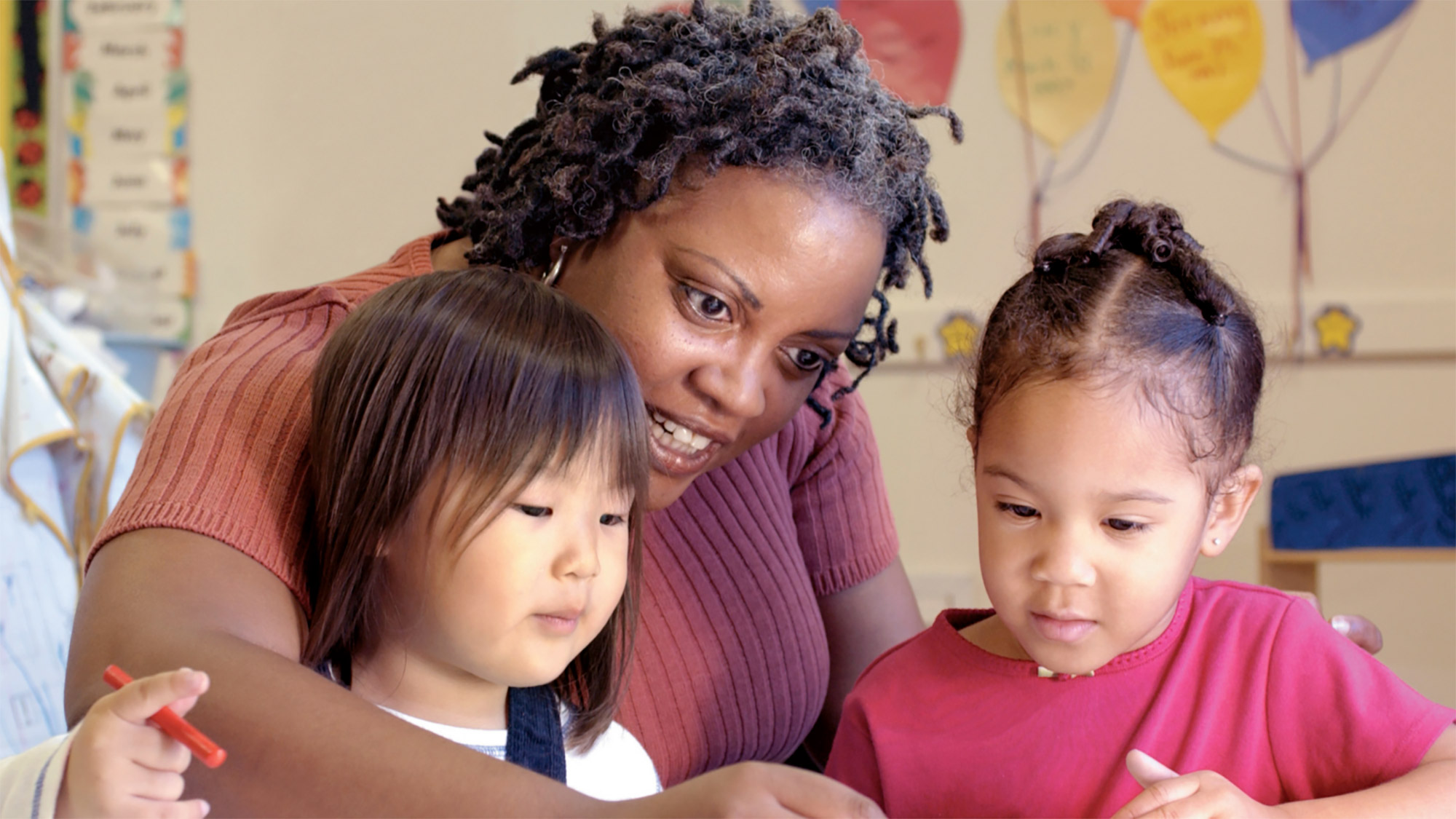The Community Advocates for Young Learners (CAYL) Institute targets the intersection of early education and racial justice. On July 13, the organization hosted an online conversation where panelists from national early childhood education leadership programs discussed their experiences in the industry and shared hopes for the future and solutions to current and foreseen dilemmas.
Here are our top five takeaways:
1. Knowledge of self is critical. “Evaluate your own beliefs,” urged Dr. Cathy Grace of the University of Mississippi. “Make sure they align with what is best for young children in the sense of access and equity.”
And Demetria Joyce of Bank Street College of Education noted that discovering and scrutinizing the “long-held beliefs, assumptions and values that we carry when thinking about racially, culturally, linguistically diverse children and how we serve” is imperative to meaningful leadership.
👉 Discover CAYL’s fellowships, intiatives, conferences and professional development programs
2. Political divisions pose problems for policy leaders. “People feel reluctant,” Dr. Valora Washington, CEO and president of CAYL Institute, said. “They feel afraid as we live in a climate where many people are being silenced.”
The National Black Child Development Institute’s Dr. Lee Johnson III said that overcoming this dilemma “requires increased awareness and understanding among policymakers, communities and the public about the long-term benefits that stem from investing in early childhood education.”
👉 Read more: “A Sense of Urgency Like Never Before”
“We have some very deep divisions in our country along political lines,” Dr. Grace explained. Being in touch with who you are and how that looks in terms of how you’re able to serve may help leaders transcend divisiveness to bring about what’s best for children.
3. Leadership should represent the population they serve. “Policy decisions should be inclusive and representative of the linguistic and cultural context of the leaders that serve them in every part of the early childhood education system,” said Joyce, who manages Bank Street’s Early Childhood Policy Fellowship.
She emphasized representation as a way to disrupt systems that hold and reinforce inequities. “Women of color make up most of the workforce serving the children,” she said, “and we need our policy tables to be more representative and inclusive of these leaders because representation matters. Leadership is one of the greatest levers for change, but we need to ensure we have an equitable path to leadership for our next generation of leaders.”
👉 Bank Street’s New Policy Fellowship Aims for Equity and Quality
4. Conflict is an inevitable part of change. We’re all human, and, as Dr. Johnson said, “Conflict will inevitably arise in any human community, organization or group.” Strategy and tools are required to constructively address and solve conflict, such as active listening and “resources around conflict management styles, recognizing that we all come to issues with different leadership styles.” Dr. Grace, who has 25 years in the industry, added, “It’s going to take for us to be tough and to have the skills to know how to make some progress” and make it last.
Dr. Washington noted that even if the work changes, “This is a baton we keep passing from generation to generation. It may look different, but the work still needs to be done.”
👉 Discover the Graduate Center for the Study of Early Learning at Ole Miss
5. Evidence and experience-based education are crucial. Dr. Johnson explained, “It’s necessary to cultivate leadership skills that emphasize compassion in decision-making and evidence-informed practices, promoting policies grounded in scientific evidence. It’s crucial to focus on strategies like providing rigorous education and training in the field of early childhood development.” Collaboration and cross-sector learning allow upcoming leaders to ponder and create solutions for what is going on right now.
Dr. Grace suggested real-world experiential learning as another useful avenue. “We all have a vision of what it’s like to be a leader, but are we in the sense of the reality of what it could take?”

Mark Swartz
Mark Swartz writes about efforts to improve early care and education as well as developments in the U.S. care economy. He lives in Maryland.



